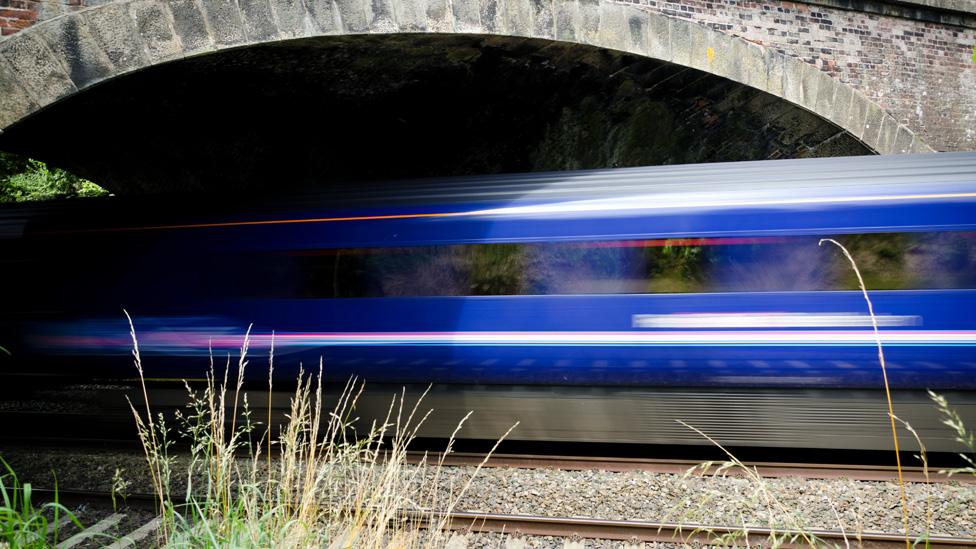Chinese property investors bet on the Northern Powerhouse
- Published
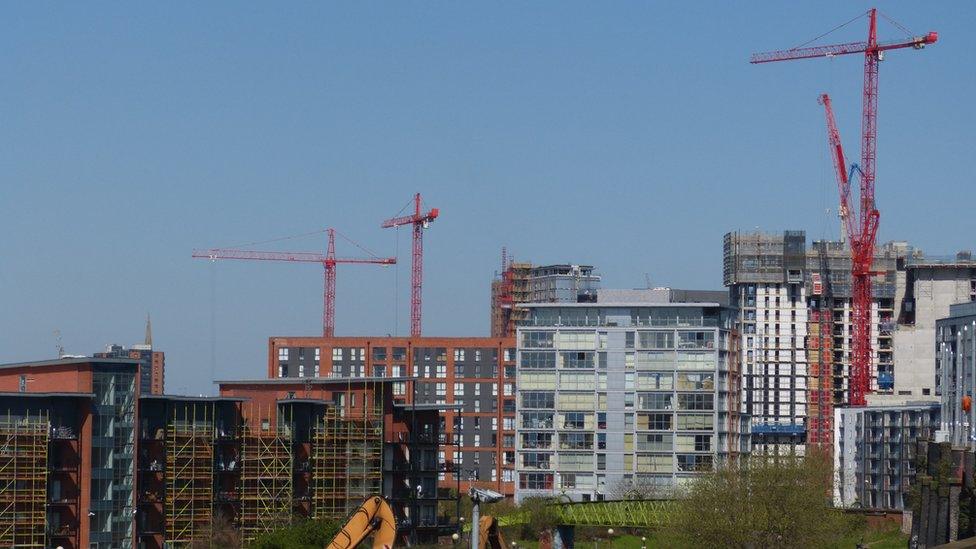
The Chinese are not only buying in Manchester, they are building it as well
Listening to details of when the M62 motorway is likely to be upgraded - or how the high-speed railway HS2 is progressing - may not be your idea of a scintillating weekend.
But this Saturday and Sunday 500 Chinese investors will be lapping up such details in two of Hong Kong's swankiest hotels, along with their dim sum.
No longer will they be staring at artist impressions of Canary Wharf or Battersea.
Instead, lured by George Osborne's promotion of the "Northern Powerhouse", Chinese investors are packing their bags and heading up the M6.
They are not just buying homes. They are building them, too.
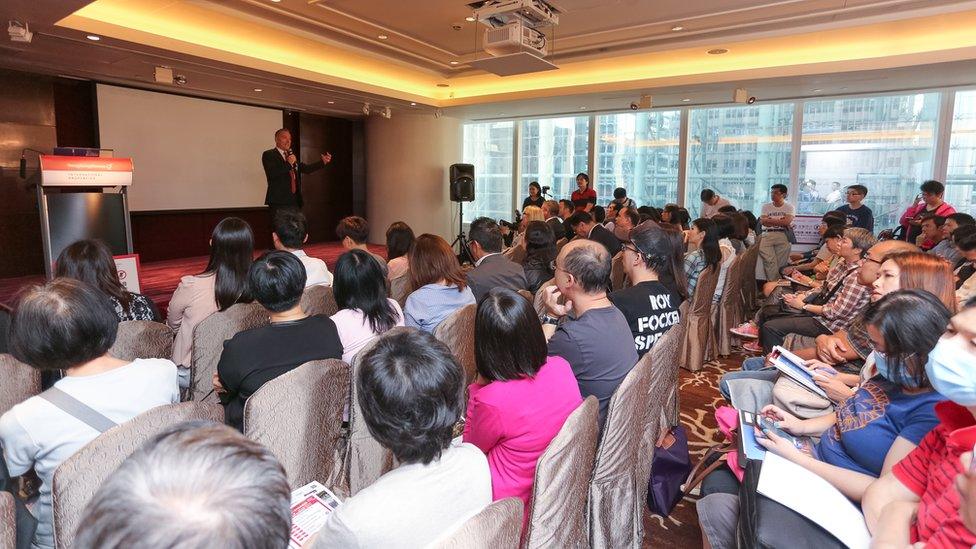
Chinese investors pack in to hear about property in the Northern Powerhouse
In the process the Chinese are helping to fuel the beginnings of a property boom and push up prices, particularly in Liverpool and Manchester.
Little wonder that earlier this month the Royal Institution of Chartered Surveyors (Rics) reported that prices in London are expected to fall significantly over the next three months, while prices in the North West are expected to soar.
Heading north
So far this year Hong Kong Homes, the property company organising the seminars, has already sold more than 400 flats in Manchester, Liverpool and Sheffield to Chinese clients.
"There are a lot of people switching from London," explains Charis Chan, the senior manager of its international property division.
One reason is the announcement that HS2 will be extended to both Leeds and Manchester.
"First of all it's the Northern Powerhouse - because they've heard that much new infrastructure is coming to the North. And another thing is the railway," she tells the BBC.
Rising stamp duty
Some of those investing will never come to the UK in person, she says. Others are buying for children who come to university here.
Another factor, also down to the chancellor, is this month's increase in stamp duty.
Now that the top-rate of duty on a property worth more than £250,000 is 8% for investors, London looks less attractive.
"If they go for the North, they can find something in the city centre below this budget," says Ms Chan.
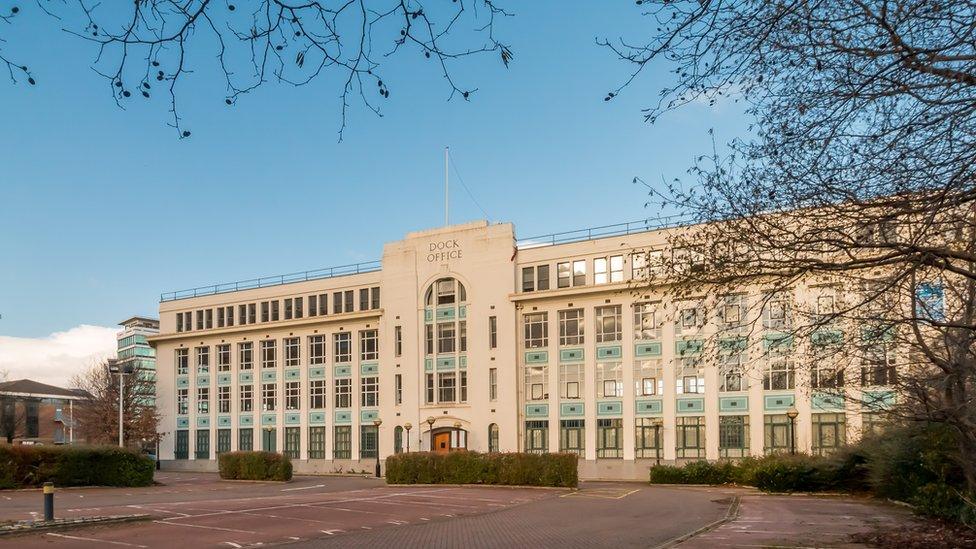
A quarter of the properties at the Dock Office in Salford have been sold to Chinese buyers
'A lot of cash'
In one recent development at Salford Quays, called the Dock Office, just half the apartments were sold to local people. A quarter went to Chinese nationals, and a further quarter went to Brits living abroad.
Julie Twist, an estate agent who specialises in Manchester city centre apartments, was surprised at how much money the Chinese were prepared to spend.
"The prices were hefty on those. But £300 a square foot is nothing to them," she says.
"It's definitely pushing up prices, because they're bringing a lot of cash over here."
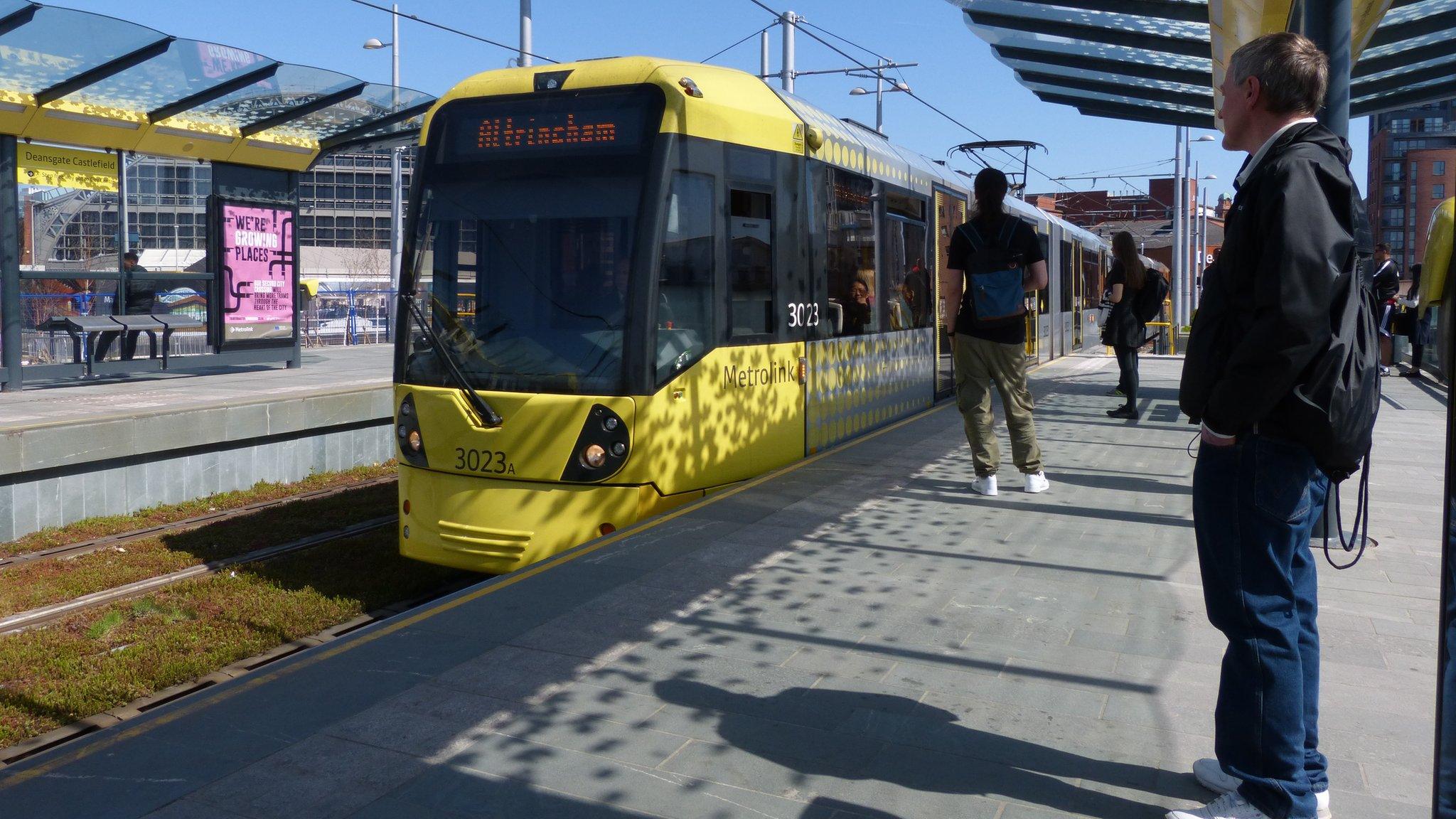
Manchester's tram network is popular with residents of Hong Kong
As prices have risen in London, the rental yields - the percentage returns every year - are beginning to look more generous in the big northern cities. There's a greater chance of capital appreciation, too.
Meanwhile the new infrastructure - and the extension to Manchester's tram system - is proving a particular draw to investors from Hong Kong.
"If you've got a development next to a tram, that's very attractive to the Chinese, because that's the way they're used to travelling around," says Ms Twist.
Culture
The Chinese are not just buying Manchester. They are building it as well.
The Beijing Engineering Construction Group is investing £800m in Manchester's Airport City, which will include a hub for other Chinese firms to set up. President Xi Jinping saw the site in person when he visited last year.
The street names will be in Mandarin as well as English.
"For Chinese people to see their head of state in Manchester, it helped bring confidence to the market," says Vincent Cheng, a Chinese-British property consultant.
"In Chinese culture we look for that confidence, and you cannot have a better boost than that."
The fact that Manchester now has direct flights to both Beijing and Hong Kong also makes travel much easier.
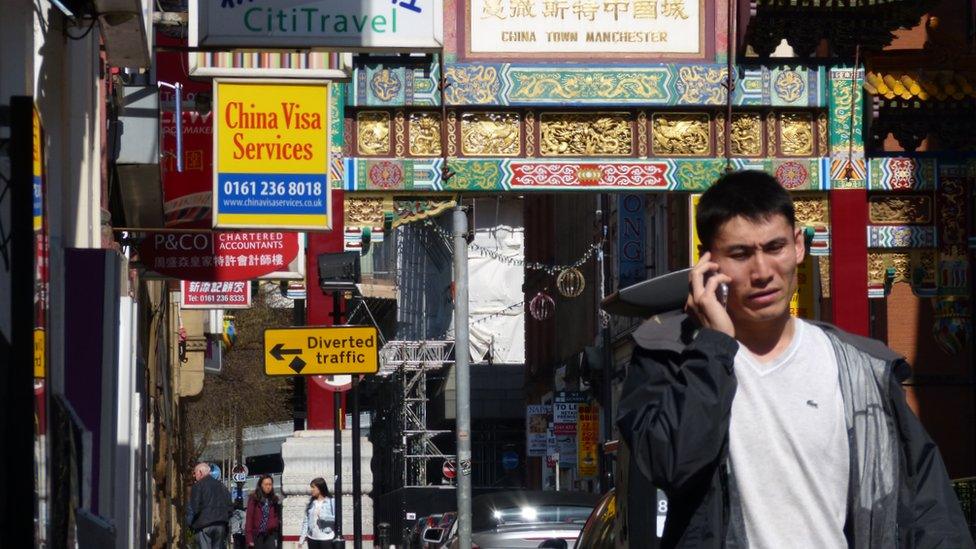
Manchester's Chinese community is set to grow significantly
'Long-term opportunities'
Apartment blocks all over Manchester are now being built with Chinese money.
The Alto development in the Spinningfields area was part-funded by Chinese investors, and Chinese people are buying the apartments.
Even a slice of Manchester City Football Club has been sold to the Chinese.
"Their attitude to the Northern Powerhouse is stunning. It's insatiable," says Richard Wills-Woodward, an entrepreneur who helps wealthy Chinese individuals invest in the UK.
He points to the 300 million middle-class Chinese, a figure equal to the whole population of the USA - who have money to spend.
"These people are coming. They're investing in the Northern Powerhouse because they're looking at long-term opportunities. These guys are looking at 20 or 30 years ahead."
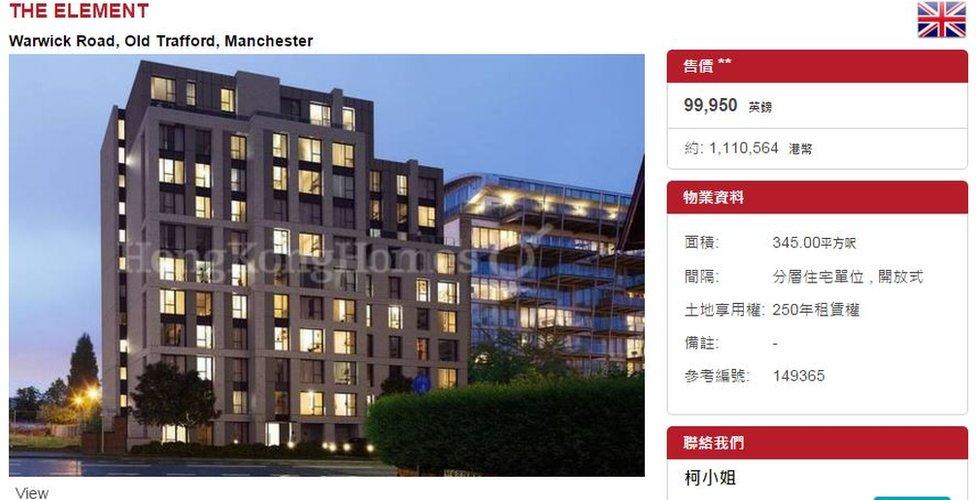
Flats for sale off-plan to Chinese buyers
'London of the North'
But a potential property boom is not good news for everyone in Manchester.
The housing charity Shelter - which is campaigning for a national register of off-plan sales - believes that the influx of Hong Kong dollars will cost local people dearly.
"As the London property market plateaus, investors are turning their attention to other cities," says Toby Lloyd, Shelter's head of policy.
"Ordinary families are already struggling to keep up with rising house prices in those regions, and investors flocking in to speculate on homes that haven't even been built yet will only push prices further out of reach."
But property booms, like the gold rush, are unstoppable.
Mr Wills-Woodward knows of one Chinese family who sold up in London, and drove up the M6 in search of new opportunities.
"Manchester is going to become the London of the North," he predicts.
Watch: Chinese companies are on a global shopping spree
- Published22 February 2016
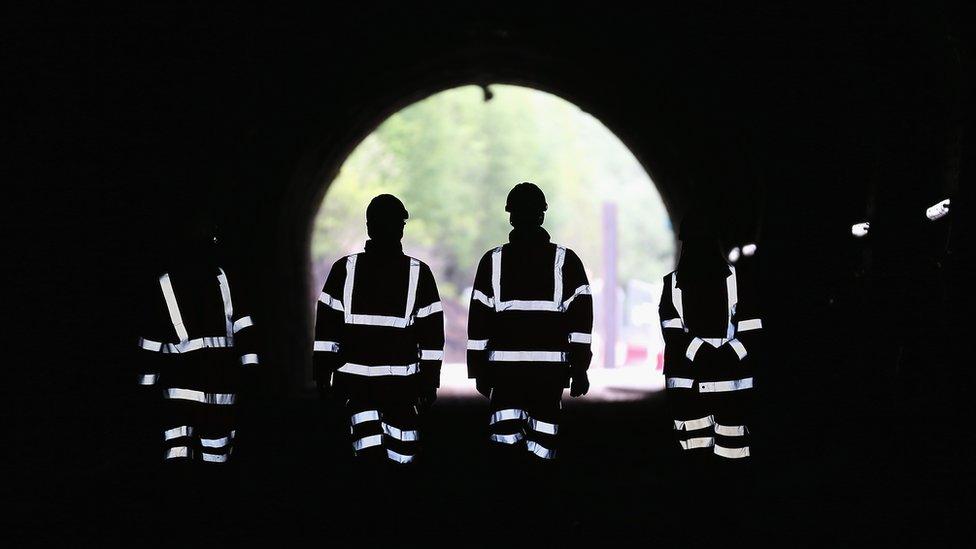
- Published22 February 2016
